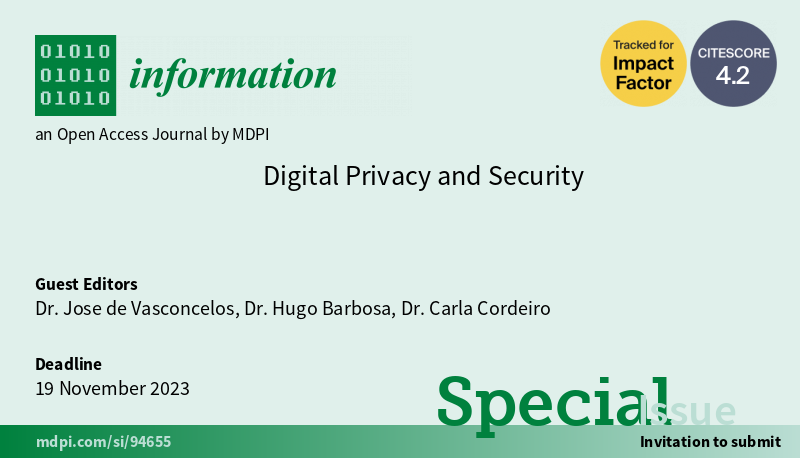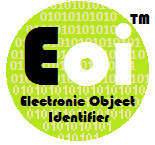Call For Papers
The main objectives of this conference with regard to security, privacy, hacking, and cyber warfare are as follows: Encouraging the study, improve the practice, and advance the knowledge; Providing the intended audiences with the technological advancements; Transferring the knowledge; Encouraging the applied research.
The Digital Privacy and Security Conference 2024 scope covers the following areas (but not limited to):
| Cyber Security | Privacy and Trust |
| Computer Forensics | Formal Methods Application in Security and Forensics |
| Cyber Warfare | Forensic Analysis |
| Cybercrime | Cryptography |
| Database Security | Cryptanalysis |
| Wired and Wireless Network Security and investigation | Mobile Network Security |
| Games for Cybersecurity Training and Awareness | Data Encryption Applications |
| Security in Contents Distribution Networks | Security Algorithms |
| Tracing Techniques in Internet | Electronic Mail Security |
| Security Protocols | Digital Contents Copyright Protection |
| System Security Management | Network Security Management |
| Management in Network Equipment | Storage Area Networks Management |
| Information Security Management | Security in E-Commerce and M-Commerce |
| Emerging Technologies and Applications | Cloud Computing Security |
| Data Mining Security | Hacking Techniques |
| Social Networks & Web 2.0 Trust Management | Policy of Trust in E-leaning system |
| Authorization, Authentication and Identity Management | Multimedia Content Management |
Submission Guidelines
In order to allow a diversity of contributions, the DPSC2024 will accept full/short research papers and posters.
Full papers should be no longer than twelve pages, including all additional material such as references, appendices, and figures. Short papers (previously work-in-progress papers) should be no longer than six pages. A poster should be not larger than A2 size (420 x 594 mm or 16.5 x 23.4 in). It should be visually appealing and portray ideas with diagrams. Use of text should be limited.
Full/short papers must be formatted according to the Springer LNCS template.
Posters should follow IEEE 8.5″ x 11″ Two-Column Format. Presenters will be provided with materials to display the posters. A poster slam session will be arranged to allow presenters to talk about their posters and invite conference participants to visit their stands.
The manuscripts should present an idea on one or several topics of the conference and be submitted in electronic form (PDF format) using the Paper Submission Page (EasyChair system). All manuscripts will be peer-reviewed by at least two reviewers.
All proposed papers must be electronically submitted here or clicking in the button bellow.
https://easychair.org/cfp/dpsc2024
Templates and Formating
Using these templates is strongly advised to all authors submitting a paper for reviewing and mandatory for those uploading the camera-ready version of their papers.
Important Dates
Abstract registration - November 04 25, 2023 (deadline)
Submission deadline - December 09, 2023 (Firm Deadline)
Authors Notification - January 02, 2024
Camera-Ready - January 08, 2024
Registration Closed - January 09, 2024
Conference
Date - January 10-11, 2024
Possibility the published the paper in a special issue to MDPI Journal Information - Digital Privacy and Security, 2nd Edition. https://www.mdpi.com/journal/information/special_issues/NC85V913K6 - Digital Privacy and Security, 2nd Edition
This special issue "Digital Privacy and Security" will present extended versions of selected papers presented at the 7th Digital Privacy and Security Conference DPSC2024.

Possibility of all the published research paper in Proceedings DPSC2024 receive EOI - Electronic Object Identifier.

A EOI is a unique alphanumeric identifier applied to a specific piece of intellectual property, particularly one presented in an online environment. Unlike a conventional Web address, or URL, a EOI specifies not the location of an online object, but rather its content; a EOI is thus a "persistent" identifier, and remains associated with the object irrespective of changes in the object's Web address.
Ethical Guidelines for Authors
DPSC is committed to peer review integrity and practices the highest standards of ethical publishing across all DPSC proceedings. DPSC publication ethics encourages integrity in research and peer review process as outlined below and we prohibit any malpractices regarding publication. DPSC uses tools to verify the originality of every submitted manuscript.
Fabrication/Falsification of data: Making up data or results and recording or reporting them is fabrication of data. Falsification of data is manipulating research materials, omitting/deletion/suppression of conflicting data without justification and this would cause mistrust and disgrace to scientific community.
Plagiarism: Using another person’s ideas, language, graphs, pictures, results and experiments without giving credit to them. Without citing the source, copying even a single sentence from your own or another person’s research paper leaded to plagiarism.
Citation Manipulation: Citing irrelevant articles that don’t contribute to content of manuscript is a kind of scientific misconduct.
Concurrent submissions: It is submitting the same manuscript to more than one journal at the same time. It is a waste of time of editors and peer reviewers, and can also damage the reputation of journals if published in more than place.
Accountability: All authors whose names appear on the manuscript are equally held accountable for the content of a submitted manuscript or published paper.
Ethical Guidelines for Reviewers
DPSC proceedings are peer reviewed by two or three reviewers and the Scientific Committee Chair makes the final decision. It is expected that reviewers during the review process should be principled, prompt, act with confidence, contribution to the final decision, acknowledge source, and stick to objectives and guidelines mentioned below
Reviewers should understand that the peer review process is confidential. The review process should not be shared with anyone outside the peer review process.
Reviewers clearly understand that review process should be unbiased and author deserves full credit for their work.
Reviewers should submit a comprehensive and substantial peer review report in a timely manner. If there is delay, it should be communicated to the chair.